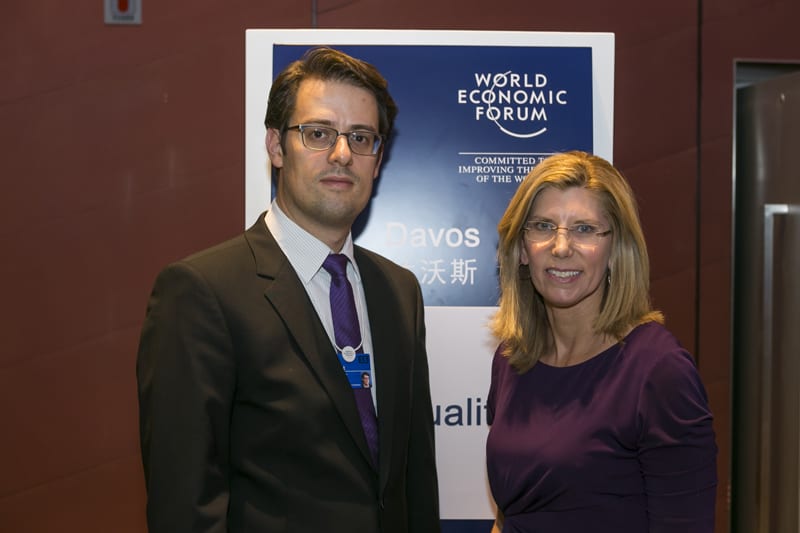As Asia’s foremost global business conference, the 7th “Summer Davos” of the World Economic Forum in Dalian offered valuable insights into China’s way forward, the new leadership’s economic policies and a sneak preview of trends that will have an impact on our business and our clients.
1. China’s New Premier Means Business
In his opening address to 1,600 global business leaders, Chinese Premier, Li Keqiang, gave a broad overview of his economic ideas. Li, who holds a Phd in economics, is promoting an approach that is strikingly different from that of his predecessors: despite more moderate growth rates, China will abstain from another round of massive government investment to boost short-term growth. Structural reforms and opening up the country’s markets are high on his agenda. His message to global investors: keep calm and carry on, China will meet its targets.
2. The Promise of a Level Playing Field
One of most eagerly awaited comments by the international business community was the Premier’s remarks on corruption. He promised “a level playing field” for foreign companies in their competition with budding domestic businesses and, in particular, giant State Owned Enterprises (SOE). Chinese media, such as CCTV or 21st Century Business Herald, reported what might well be the first proof of that: the controversial anti-corruption probe into Western pharmaceutical companies was extended for the first time to domestic companies.
3. A Silver Line for Intellectual Property
Diverging views of intellectual property and the lack of protection and enforcement have also been a contentious issue between Chinese officials and foreign business for quite some time. Premier Li extended an olive branch in a 2-hour informal conversation with 200 CEOs by implicitly embracing the meeting’s theme “Meeting the Innovation Imperative” in his guest commentary in the Financial Times.
4. China’s Growth Will Depend On Agriculture and Food Safety
Innovation is also sorely needed in China’s fledgling food and agricultural sector, a long standing area of expertise at Ketchum. The country will need to grow more food on less arable land in the years to come. Experts argued for a shift in policy and behavior to enable larger farms, increase food shelf life via packaging and enzymes, as well as find ways to conserve water. Discussion at the meeting ranged from convincing consumers to live a lower impact lifestyle to helping companies promote new types of products to the necessity to reform the regulatory framework. At the same time, growing food safety concerns are offering opportunities for importers of non-Chinese food brands looking to scale their business globally.
5. The Spread Of Mobile and the Next Connected Billion
Mobile was inescapable. Predictions that smartphones will be available for less than $50 and individual cell towers will cost less than $100 are already starting to become a reality in China. Domestic handset manufacturers are building smartphones that are priced as low as $23 USD. As the next billion emerging market consumers look to buy their first smartphone, sectors as diverse as banking, media consumption and advertisement, retail, healthcare and e-commerce will be disrupted. For example, some predict retail locations in China will become showrooms only where we will place orders for home delivery. EKG’s will be done on mobile devices and sent to the doctor for evaluation.
6. Time Efficiency Is A Consumer Driver
As consumers seek more enjoyment while they work longer days, they are looking for ways to save time. This means better master planning of cities to reduce commute time, mobile technology that cuts down on doctor visits, food convenience such as pre-squeezed fresh juices, enhanced e-commerce that shortens shopping time and streamlined banking methods.
7. Urbanization as a Driver of Growth (and Debt)
Since 1950, 23 cities in China have grown from 100,000 to one million in population. In comparison, only six cities in India have. Urbanization is still seen in most provinces as a way to spur domestic consumption amongst a growing urban middle class. Large infrastructure projects bring prestige, keep an estimated 200 million migrant workers occupied and bolster economic growth. The central government in Beijing, however, is growing wary of large infrastructure projects in the regions. The costs of urbanization in the form of land use, negative environmental impacts and increasing public debt have taken a more prominent position in the administrations’ thinking.
8. The Multi-million Micro-blogger Challenge
China-specific social networks like Sina Weibo, WeChat or QQ have the potential to dwarf American networks like Twitter and Facebook which are experiencing firewall challenges in China. While the Communist Party is still quite effectively controlling certain issues, users can freely discuss brands, comment on services and exchange views on most topics. For foreign companies, it will be a huge challenge to understand what is being said about their products and to manage communities of more than 300 million potential users. The popularity of micro-blogging in Chinese and its ability to transport more content than a tweet or a Facebook post adds to that challenge.
Photo credit: World Economic Forum.



